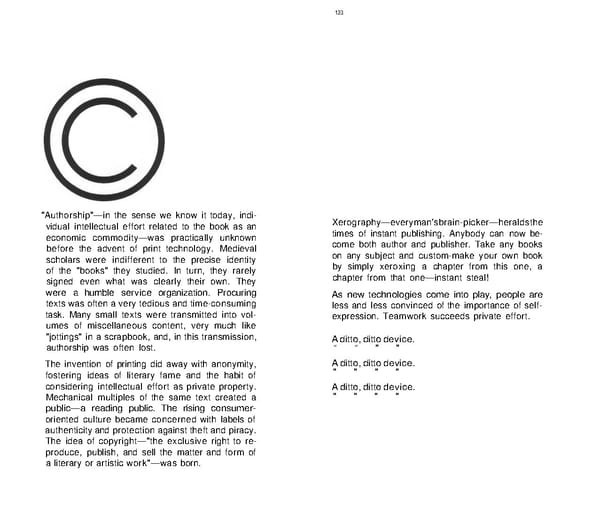123 "Authorship"—in the sense we know it today, indi Xerography—every man's brainpicker—heralds the vidual intellectual effort related to the book as an times of instant publishing. Anybody can now be economic commodity—was practically unknown come both author and publisher. Take any books before the advent of print technology. Medieval on any subject and custommake your own book scholars were indifferent to the precise identity by simply xeroxing a chapter from this one, a of the "books" they studied. In turn, they rarely chapter from that one—instant steal! signed even what was clearly their own. They were a humble service organization. Procuring As new technologies come into play, people are texts was often a very tedious and timeconsuming less and less convinced of the importance of self task. Many small texts were transmitted into vol expression. Teamwork succeeds private effort. umes of miscellaneous content, very much like "jottings" in a scrapbook, and, in this transmission, A ditto, ditto device. authorship was often lost. " " " " The invention of printing did away with anonymity, A ditto, ditto device. fostering ideas of literary fame and the habit of " " " " considering intellectual effort as private property. A ditto, ditto device. Mechanical multiples of the same text created a " " " " public—a reading public. The rising consumer oriented culture became concerned with labels of authenticity and protection against theft and piracy. The idea of copyright—"the exclusive right to re produce, publish, and sell the matter and form of a literary or artistic work"—was born.
 The Medium Is The Massage - Marshall McLuhan Page 65 Page 67
The Medium Is The Massage - Marshall McLuhan Page 65 Page 67